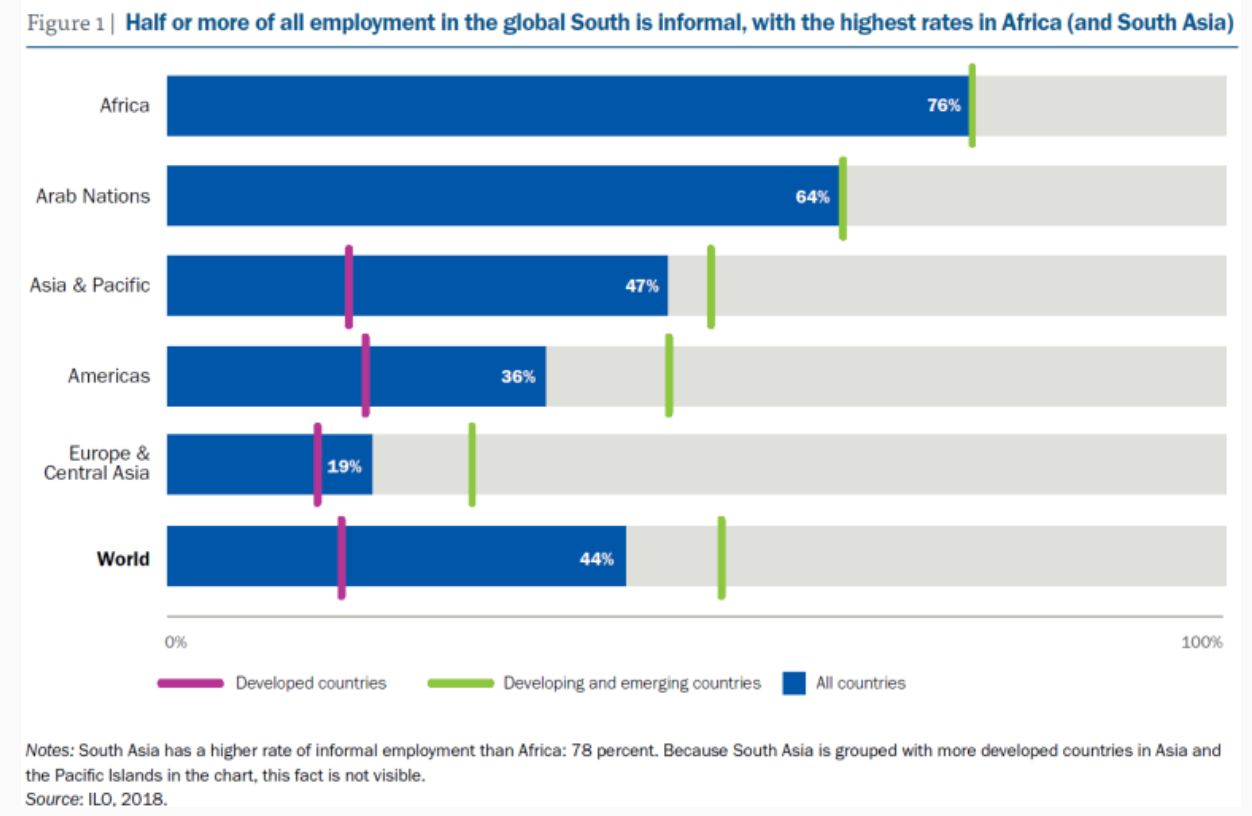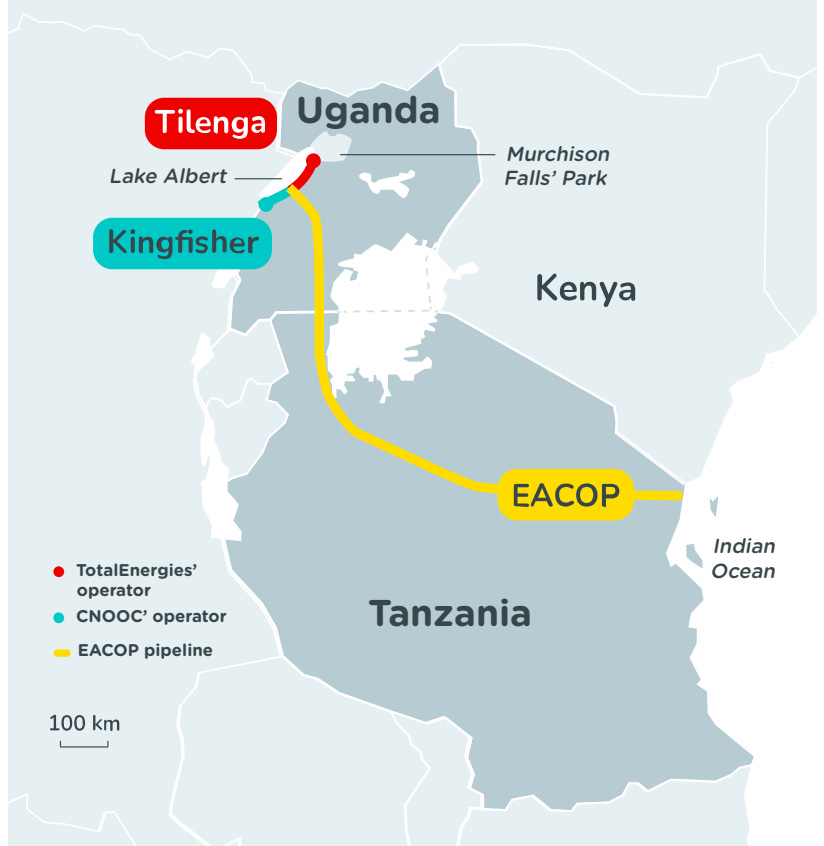Dear Friends,
Your Africa Brief arrives a day early on this 60th anniversary of Africa Day!
Happy reading. Stay well.
TL;DR
China-Congo. Felix Tshisekedi, Congo’s President, arrived in Beijing this week flanked by a sizable delegation, including his ministers of mines, hydropower, and defense. He is expected to meet with China’s top leadership and announce a US$6bn infrastructure-for-minerals deal (Al Jazeera).
Drought, war, and famine. 7 million malnourished children under the age of 5 urgently require nutrition aid, with 1.9 million at risk of dying due to severe malnutrition in the Horn of Africa (UN News). More needs to be done to meet this humanitarian catastrophe, driven in part by climate change.
Gavi. The Vaccine Alliance said that the global shortage of cholera vaccines is likely to last until 2025 as outbreaks surge worldwide, including in the South African capital, Pretoria (Reuters). Just last year South Africa’s Biovac secured an advancement market commitment for oral cholera vaccines. Vaccine and therapeutics manufacturing is a growing and profitable sector on the continent.
Hydrocarbons. Nigeria has opened an oil plant touted as Africa's largest refinery. The plant has a capacity of 650,000 barrels a day, a ticket price of $19 billion plant and built by Aliko Dangote – Africa's wealthiest man. The plant could help Nigeria's drive to lower imports of refined petroleum products (France24).
Refugees. Sudan is one of the world’s largest refugee host countries, housing displaced populations from South Sudan and Eritrea. The fighting in the country has reversed this trend. Neighboring states are now receiving thousands of Sudanese refugees.
Sudan. A week-long ceasefire started this week, despite air strikes and clashes in Khartoum, the capital. Previous attempts at truce have all failed.
Tech Startups. South Africa’s disruptive neobank, TymeBank, secures funding from Tencent and Norrsken22. While Sabi raises funds in its efforts to tap Africa’s $1 trillion informal retail market.
Graphic of the Week
*Credit: New York Times
In Context: The New York Times reports on the Architecture Biennale in Venice. The exhibition, hosted for the first time by a curator of African descent, explores how cultures from Africa can shape the buildings of the future. Globally, architecture has begun to trend toward biomimicry, where the built environment emulates the natural one. African design, says Sechaba Maape, a South African, has always done this through pattern and form. “Architecture should be the thing that instead of separating us from our home, the Earth, should help us feel more mediated, more connected,” Maape said (NYT).
Business in Africa
Next week the African Energy Chamber hosts the Invest in African Energy Paris Forum. Discussions will be centered on financing African energy projects; developing Liquefied Natural Gas (LNG) for both African and European markets; and the role renewable energy and green hydrogen will continue to play in industrializing and electrifying Africa (AEC).
The Forum arrives just as Nigeria opens an oil plant billed as Africa's largest refinery. With a capacity of 650,000 barrels a day, the US$19 billion plant built by Aliko Dangote – Africa's wealthiest man – could help Nigeria's drive to lower imports of refined petroleum products and even become a net exporter (France24).
*Credit: Statista
In the Fintech space, South African challenger bank TymeBank raised US$77.8M from Norrsken22 and Blue Earth Capital (TechCrunch). TymeBank expects to close its Series C round later this year, it said. Tencent, the lead investor in the fintech’s US$70 million Series B extension raise in December 2021, recently increased its stake to become TymeBank’s third-largest shareholder. TymeBank is majority owned by Patrice Motsepe’s African Rainbow Capital (ARC). The South African fintech is also backed by the British International Investment (BII), Apis Growth Fund II, JG Summit Holdings (JG Summit), African Fig Tree (AFT), and the Ethos AI Fund.
Sabi, a fast growing Nigerian eCommerce startup, is looking to tap into the informal trade sector that makes up most of Africa’s $1 trillion retail market. The company is now valued at $300M (TechCrunch).
*Credit: Brookings Institute
Sabi provides digital commerce infrastructure to Africa’s informal economy, and has raised US$38 million in its latest Series B, according TechCrunch. The new investment signals revived investor interest in the B2B e-commerce market.
In a bizarre implicit admission of its own failings, the Secretary-General of the ruling African National Congress said that South Africa risks becoming a “failed state” but has not reached that point yet. The country is struggling with power cuts of up to 10 hours per day.
*Credit: The Economist
And finally, Lord Peter Hain once again refused to meet James Hadley, Bain & Co.'s UK managing partner. Bain is widely accused of helping former President Jacob Zuma ‘capture’ the South African Revenue Service (SARS). Hain told Hadley in a blunt letter last week that he would not meet him until Bain & Co had fully disclosed its activities in the South African Revenue Service (SARS) and other state entities during the Zuma years. Lord Hain, a longtime advocate for good governance in Africa, vowed to press ahead to get the British Government to reinstate its ban on Bain from doing business with the UK Government (Daily Maverick).
China in Africa
The South China Morning Post published a fiery headline this week; “China doubles down on controversial African pipeline as Western lenders walk away.” The story concerns the US$5 billion East African Crude Oil Pipeline (EACOP).
*Credit: TotalEnergies
SCMP, unsurprisingly writes that China is an ‘indispensable actor’ in “East Africa amid continued Western criticism of its role there”.
The Export-Import Bank of China (Exim) and “several other Chinese banks” will finance the US$3 billion debt required to build the pipeline. Ugandan Energy Minister Ruth Nankabirwa says that “Part of the money is going to come from Exim Bank of China” and “two companies from two African countries are offering funding.”
Howard French writes in Foreign Policy that US Apathy Paved the Way for China in Africa. In his essay, Mr French opines that the US once had a strong foothold on the continent during the Cold War. Since then, however, Washington has fumbled on the continent. This is a good read for those interested in the reorientation of the States’ diplomatic position on the continent.
Climate in Africa
The African Development Bank (AfDB) held its annual meeting in Egypt this week. At the meeting, the AfDB's head lashed out at advanced economies for their failure to meet their pledge of $100 billion a year in climate financing to the continent.
Devex estimates that the continent requires about US$250 billion annually in climate finance inflows. It gets about 10% of that, of which an even smaller fraction — just $4.2 billion — from the private sector. This figure is the lowest ratio of public-to-private climate finance in any region of the world.
And more African climate funds completed their capital raise, with E3 Capital and Lion’s Head Climate Fund hitting a first close at US$48M to back African startups (TechCrunch).
Democracy in Africa
The mountain Kingdom of Lesotho continues to struggle politically. This week the government instituted an indefinite curfew in the hopes of curbing gun violence following the death of a journalist last weekend (his murder is an apparent hit). Out of 180 countries, Lesotho ranks 67 in terms of press freedom, according to Reporters Without Borders. Lesotho has the world’s third-highest homicide rate, with more than 43 murders per 100 000 people, according to World Population Review (Observer).
Europe in Africa
AfricaNews reports on recent data from the European Environment Agency which finds that 90% of used clothes and textile waste from European countries have made their way to Africa and Asia through exports. The used clothes market stifles the African textile manufacturing market, with cheap prices cutting local producers. The US under Trump even entered into a trade war with Rwanda over its imposition of duties on second hand clothes from the US.
And Andrew Mitchell the U.K. International Development Minister said that giving development aid to lower-income countries is crucial to preventing irregular migration to Britain (The Telegraph).
Health in Africa
The WHO announced a new platform to facilitate vaccine, diagnostics, and therapeutics coordination for future pandemics (Devex).
Peace and Security in Africa
The presidents of South Africa, Senegal, Egypt, the Republic of Congo, Uganda, and Zambia are set to travel to Ukraine and Russia this June on what South African President Cyril Ramaphosa has described as “a peace mission.” The move is set against a backdrop of a South African foreign policy fallout after the US ambassador accused South Africa of sending arms to Russia.
A friend of your correspondent and political commentator, Eusebius McKaiser, argues in Foreign Policy that South Africa’s government has consistently failed to explain its nonaligned stance. “Being displeased with the United States’ place in the world does not logically entail supporting an illegal war started by Russia. A truly non aligned country can critique both the United States and Russia,” (Foreign Policy).
Look out for my piece in South Africa's Business Day next week on this topic.
US in Africa
And finally, the US continues in its effort to secure an array of critical minerals deals to establish itself as the new economic power in the transition to electric vehicles. It is uncertain whether these deals will succeed or if the US will catch up with China (NYT).
Warmly,
Joshua








